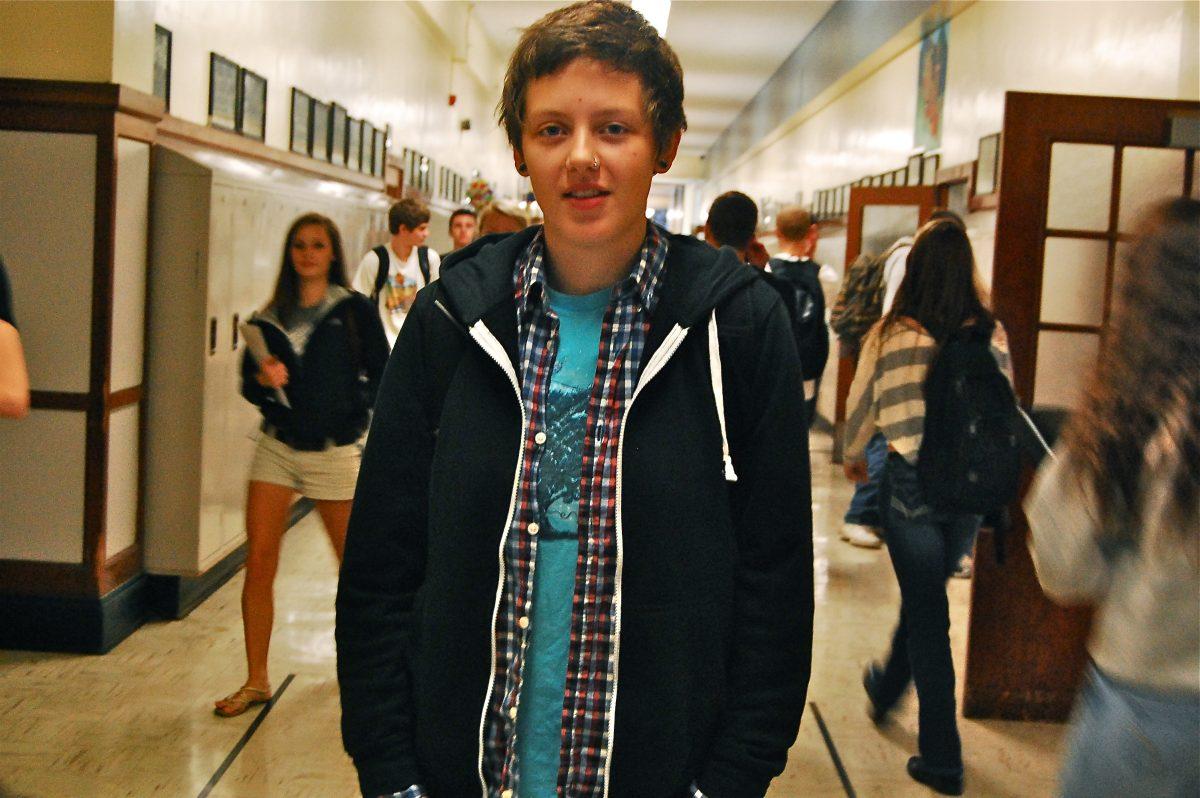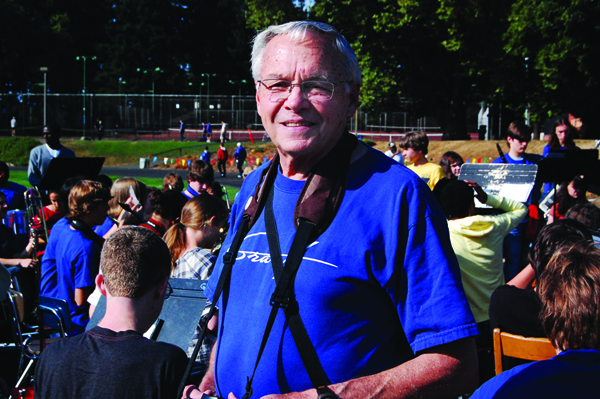Iris Hehn remembers her first personal experience with intolerance at Grant High School well. She was a sophomore and was walking down the stairs to center hall when it hit her in the back of the neck.
She felt the slimy wad of spit that had come from a group of boys standing nearby. Then she heard one of them say it: “Dyke.”
“At first I was disgusted, ‘cause I had to wipe some spit off my neck,” Hehn recalls. “Then I was just kinda like upset for a while. It’s not a nice thing to hear, to be called a dyke and spat on by your peers.”
The experience had her questioning whether it was wrong to be gay and left her with low self-esteem – for an hour. Hehn quickly got over it when remembered all the people who love and support her
While many at Grant fashion themselves as appreciating diversity, Hehn and other openly gay students are subject to instances of intolerance. Hehn, now a senior, refuses to be a victim.
“Living a normal life comes pretty easily,” she says. “I have friends who confront the fact that I’m gay, but don’t make a big deal about it. Having a supportive friends group is really what makes it easy.”
Vice Principal Brian Chatard used to handle discipline at Grant. He remembers seeing things like what happened to Hehn go on in the halls. He says some students bow to peer pressure rather than standing up and doing what’s right.
“The mentality of people, and what they’re willing to say and to do to each other, goes way down when kids get into groups,” Chatard says. “That whole social dynamic starts to take over where you don’t speak out against something that’s going on because you’ll be perceived as not being cool, and you will tolerate things that people say or do that you wouldn’t normally tolerate.”
In the past year, there’s been a flood of attention about gay teens. Schools have taken popular olerance pledges and held workshops on how to stop bullying.
Here in Portland, Grant student Giovanni McKenzie produced an “It Gets Better” video with county employees during his internship at Multnomah County.
While the attention helps, some in the gay community worry that gay kids will begin seeing themselves as victims.
Hehn, though, is far from a victim.
She was born the younger of two girls and grew up around the corner from Grant. Hehn says she was “not girly at all” as a kid. She dyed her hair blonde for the first time in second grade. She changed it to red by fourth grade.
She hung out with the skateboard crowd, a group of guys that jammed to rock music and dressed in band tees, ripped jeans and high-top Converse sneakers. She developed a passion for rugby. In the summer before fifth grade, she cut her hair short due to a bad case of lice. She kept it that way since.
She dated boys in middle school, but it never “felt right.” She came out as bisexual in eighth grade to her friends. They took it in stride and were fully behind her. “It wasn’t a big deal,” she recalls.
By the time she got to Grant, she says she was still seriously considering her sexual orientation. During December of freshman year, Hehn realized she was gay. She didn’t worry about her parents – she was sure they would be accepting. But there was still a risk in telling them.
Hehn struggled for two months before finally letting on. Her mother remembers the moment like it was yesterday.
“I knew that she was gay, or I had a strong suspicion that she was gay,” Amy Holmes Hehn says. “I told her that I’m totally fine with it, which is the truth. I’m very supportive of her and completely comfortable with her being gay. I was glad that she felt comfortable enough with me to be able to share that with me. It just seemed right.”
Her dad? “To my dad I was like, ‘I am dating this person. I am gay.’ And he was like: ‘Yeah, so? I know,’” she says now.
“The fact that my parents are totally accepting and don’t even talk about my gayness because its who I am makes life easier,” Hehn says. “If I didn’t have the support of my peers, I could go home and have a safe place to be.”
Today, Hehn leads a normal teenage life. She’s committed to rugby, playing on the Grant team that won the state championship in the 2009-10 season. She still skateboards a lot and she loves art. She spent three years with her friends painting a mural in her room. She plays guitar in a band called Tico Rosa with her sister, Cleo.
As far as the future, Hehn sums up what she’s about: “I’m actually a huge advocate for boosting self-esteem. Making people feel good about themselves is a big part of my life. So is people’s creative form of expression, and my own.”
Hehn sees herself going to either Hawaii Pacific University, so she can go surfing between classes, or Berkeley City College in California. In the long run, she wants to be a pastry chef at a hybrid between a bakery and flower shop, co-owned by her sister.
And she wants to settle in Portland.
She says the next step that she wants to see in her hometown is tolerance without so much attention.
“It’s really fun to go to Pride parade, but I personally think it’s like shouldn’t even have to exist,” Hehn says. “The fact that there’s a day designated for gay people…it should just be universally OK.”
Hehn is at peace with her sexuality. It’s who she is but it by no means defines her.
“It’s like, I’m gay, yes. We can put that out there and talk about that,” she says. “But then there’s other parts of me that make me who I am.”


































